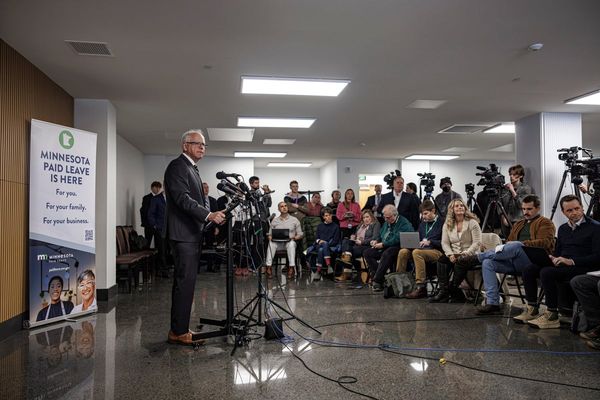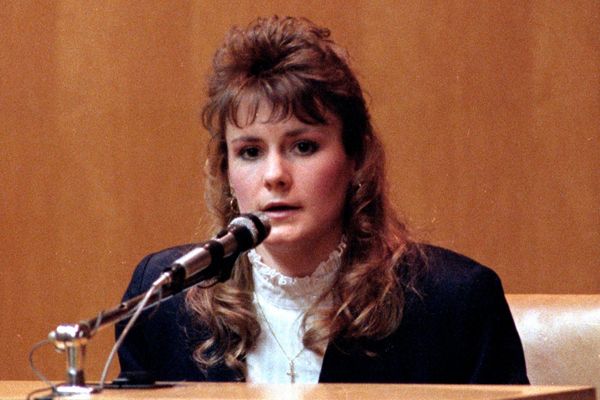
For anyone who's ever needed the blueprint for handling a tense exchange with their manager, TikTok creator Laura Whaley's got you covered.
Whaley rose to fame on the platform during lockdown, courtesy of her frank approach to workplace culture. Now, with more than 3.2 million followers on the short-form video app, Whaley's videos cover everything from setting boundaries in the workplace to time management and returning to work. Her success has lead her to leave her tech job and launch her own business, as well as consulting with organizations on how to improve their culture.
On a Zoom call with Fortune, Whaley said managers in her previous job had always been supportive of her videos.
The Canadian creator said she started posting in November 2020 simply to try and combat lockdown boredom: "The biggest thing in my life at the time was work, so I just started making videos about stuff I was experiencing. Then people started to relate to it, a few videos went viral, and I just thought: 'Let's see where this can go.'"
In the early days, her videos focused on the "new normal" of working from home, such as navigating virtual meetings, working and living in the same space, and adjusting to working alone.
Over time, Whaley said, the topics have changed but the agenda is always informed by her community.
Gen Z aren't the only ones wanting work boundaries
Of TikTok's one billion users, the biggest demographic—38.9%—are people aged 24 and under. But Whaley said stereotypical views that Gen Z are the only ones trying to redefine work culture are false.
Her audience, she said, is also made up of people who have been working for decades but don't feel equipped to push back on colleagues: "When I was growing up, we were never taught the boundaries you can set at work; it's more: 'Go into the workplace, see how it goes', and you adopt the boundaries of those around you.
"With the pandemic, it's given employees back the power of understanding of what works for them and where their non-negotiables are.
"Those videos show you're allowed to say 'no' to 60-hour weeks, that it's not something you need to accept. It's also satisfying to watch a really sassy response and agreeing we don't exist to work—which has been a lot of the agreed mentality for a long time."
For Whaley, such boundaries have always come naturally and setting them early is her key piece of advice for people entering the world of work.
"If you establish [boundaries] early people don't question them," she said. "People knew I wasn't going to be working at 8 p.m. I did all my work, I did a great job, within my working hours."
TikTok teachers
Whaley's influence over her community is clear—she's amassed more than 104 million likes on her channel—but she is keen to highlight her broad-spectrum takes won't work for everyone.
That's why she never creates scenarios based on a single comment, will never give individuals career advice, and welcomes comments which disagree with her approach.
There's no "ultimate truth," she pointed out. "No content creator thinks that everything they post is law. When I create, it's from a space of what's worked for me and what I believe in. If people disagree, I love that, it creates good conversation."
It clearly does work for many, as she says droves of supporters have gotten in touch with her to say her insights have helped improve their work well-being.
This type of content is also filling a gap in the educational system, Whaley hopes, as she believes school often doesn't prepare employees for the reality of an office job.
It wouldn't be the first time a video platform has answered massive demand for expertise—a 2018 Pew survey found that 51% of Americans use YouTube because they want to learn new things.
TikTok could be having a similar effect, Whaley said: "Speaking from my experience having gone through university, I think there's gaps in the real world applicability with a lot of the things that are taught. Textbook teachings in academia aren't as relevant in the working world.
"You're not equipped with communication skills, how to structure an agenda, time blocking, how to function in a work environment—none of that's really taught. It's so important and not once in my experience was that touched on, it was a lot of the hard skills, which I would argue can be irrelevant."
The platform—the future of which is uncertain—also "breaks down barriers" for jobseekers hoping to garner a taste of what it would be like to work for a certain company, Whaley said.
"You can see what a day in the life of a Meta employee is like," she added. "So if you're like 'I really want to work there,' you can see what it's actually like."
Viewers may not always get the answer they're hoping for. Former Meta staffer Brit Levy went viral on the platform for revealing she had to "fight for work" at the company, which she claims hoarded talent "like Pokemon cards".
Similarly, Big Tech layoffs sweeping through the likes of Google, Amazon and Twitter have trickled down to content on the platform owned by ByteDance.
Helping management return to work
Whaley's content hasn't just helped teams negotiate their return to work—managers are also turning to the channel for inspiration on how to broker these conversations.
"At the end of the day the people leading the company are also human," Whaley explained. "It's really hard to navigate how to manage people in a way that is also honoring their needs and what they're looking for.
"There's interest at the top levels to understand how they can create a good work environment for their employees because at the end of the day it's good for business if people are taking care of themselves."
At the beginning of her online career, questions to Whaley from managers often centered around how to communicate effectively online, whereas now the topics have broadened out into how managers can support staff in setting their boundaries or understanding how their teams want to work.
Whaley's audience—70% of which are female-identifying, 30% male-identifying—are also continually unpacking taboos like salary transparency and interviewing styles.
"It's the stuff that makes people realize 'We don't talk about that,'" Whaley said. "Whether it's a day in the life, pain points, frustrations. Not only what's possible and acceptable but also what else is out there. Often we can feel quite boxed in, now you can get a glimpse of that."







